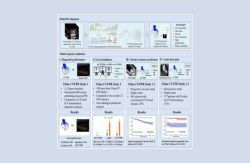A recent study conducted by researchers at the University of Leeds reveals that experiencing a heart attack significantly elevates the likelihood of developing additional serious long-term health conditions. This investigation, the largest of its kind, analysed over 145 million records encompassing every adult patient admitted to hospitals over a span of nine years. The objective was to establish the risk of long-term health outcomes following a heart attack.
Although heart attacks are life-threatening, advancements in medical care have led to over seven in 10 individuals surviving, provided they receive prompt emergency treatment to restore blood flow to the heart muscle. Despite survival rates, prior research has indicated that heart attacks can have lasting health implications, affecting not only the heart and circulatory system but also other bodily organs and mental health.
The researchers examined records of individuals aged 18 and above admitted to 229 NHS Trusts in England from January 1, 2008, to January 31, 2017, totalling 145,912,852 hospitalisations among 34,116,257 individuals. The study group included 433,361 individuals who experienced a first-time heart attack. The average age of heart attack patients was 67, with 66% being male.
The research, partially funded by The British Heart Foundation and Wellcome, highlights that individuals who have suffered a heart attack face a significantly higher rate of developing further health conditions compared to those who have not. Within the nine-year study period, up to a third of patients developed heart or kidney failure, 7% experienced subsequent heart attacks, and 38% succumbed to various causes.
The study identified an increased incidence of heart failure, atrial fibrillation, stroke, peripheral arterial disease, severe bleeding, kidney failure, type 2 diabetes, and depression in individuals who had experienced a heart attack. However, the overall risk of cancer was lower, and the risk of dementia did not differ.
Findings also showed that individuals from socioeconomically deprived backgrounds were more prone to experiencing adverse outcomes, such as death or serious long-term health conditions, following a heart attack. People from more deprived backgrounds were at a higher risk of developing heart and kidney failure compared to counterparts from less deprived backgrounds of similar age.
These study findings emphasise the significance of providing accessible online information about the risks of various health outcomes based on age, sex, and socioeconomic factors to empower heart attack survivors to make informed healthcare decisions. It also highlights the necessity for tailored care plans to address the increased demand for healthcare services among survivors.
The findings provide valuable insights into the long-term impacts of heart attacks on physical and mental health.
Source: University of Leeds
Image Credit: iStock
























